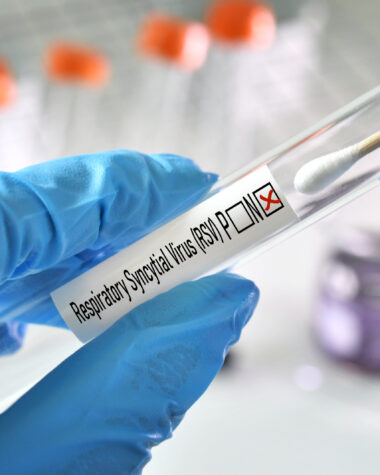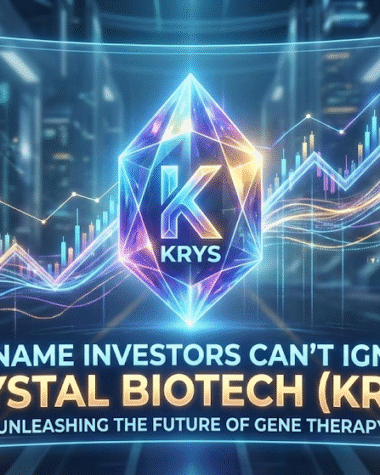MEI Pharma Inc. (NASDAQ:MEIP) is a San Diego-based clinical-stage pharmaceutical company that has built its identity around the discovery and development of novel cancer therapeutics. Founded with the mission of improving outcomes for patients with difficult-to-treat cancers, MEI has worked for years to develop targeted therapies designed to improve safety, efficacy, and accessibility compared to existing standards of care. The company has historically focused on advancing a pipeline of small molecule drug candidates, with programs that included zandelisib, a selective PI3K delta inhibitor for B-cell malignancies, voruciclib, an oral CDK9 inhibitor, and ME-344, a mitochondrial inhibitor. Each of these investigational agents reflects MEI’s strategy of pursuing mechanisms that address the biology of cancer at its root rather than simply managing symptoms. Over the past decade, the company has navigated the complex path of clinical development, partnerships, and financing as it sought to establish a foothold in the competitive oncology space.
MEI Pharma has experienced both milestones and setbacks common to small-cap biotech firms. Zandelisib, once viewed as its most promising asset, showed early potential in clinical studies but faced significant hurdles after the FDA indicated that additional randomized trials would be required prior to any submission for approval. This development shifted the company’s strategic direction, as resources were reallocated and management explored new approaches to sustain operations. The discontinuation of certain programs underscored the challenges inherent in oncology drug development, where safety, efficacy, and regulatory alignment must all converge for success. These realities, coupled with leadership changes and periods of financial uncertainty, have contributed to volatility in MEI’s share price and outlook.
In 2025, MEI Pharma made headlines by becoming the first publicly traded company on a national exchange to adopt Litecoin as a treasury reserve asset, following a $100 million private placement. While this move marked a significant departure from its traditional biotechnology narrative, the company positioned it as part of a long-term strategic plan to strengthen its balance sheet and diversify corporate assets. The appointment of Charlie Lee, the creator of Litecoin, to the Board of Directors signaled MEI’s intent to embrace digital asset strategies alongside its biopharmaceutical endeavors. This development brought attention from both the biotech and crypto investment communities, highlighting the company’s willingness to take unconventional steps at a time when its clinical pipeline faced uncertainty.
Despite its unconventional pivot, MEI remains rooted in its origins as a biotech firm with expertise in oncology research. The company continues to hold intellectual property and scientific capabilities built over years of drug development, which could serve as the basis for future programs or collaborations. However, its decision to allocate significant resources to a Litecoin-focused treasury underscores the evolving identity of MEI as more than just a drug developer. For investors and stakeholders, this dual positioning presents both opportunity and risk, as the company balances the unpredictable worlds of cancer drug development and cryptocurrency markets. MEI’s story, therefore, is one of reinvention in the face of adversity, reflecting the pressures and creativity often required for small biopharmaceutical companies to survive and attract capital in highly competitive industries.
MEI Pharma’s Unusual Pivot to Litecoin Highlights Deeper Risks
MEI Pharma, Inc. has long been known as a clinical-stage oncology company, focused on developing treatments for cancer and related diseases. Founded in San Diego, California, the company has worked on a pipeline of assets including zandelisib, voruciclib, and ME-344. Like many small-cap biotech firms, MEI’s story has often been marked by volatility, trial setbacks, and shifting strategies as it seeks to bring a drug to market in a highly competitive therapeutic space. However, MEI Pharma’s latest announcement signals a remarkable and controversial shift: instead of focusing exclusively on its biotechnology roots, the company has now positioned itself as the first and only publicly traded firm on a national exchange to adopt Litecoin (LTC) as a treasury reserve asset.
In August 2025, MEI Pharma closed a $100 million private placement, selling over 29 million shares at $3.42 each. The proceeds will not go toward drug development but instead will be used entirely to acquire Litecoin, a peer-to-peer cryptocurrency designed by Charlie Lee in 2011. The deal brought Charlie Lee himself onto MEI’s Board of Directors, while the digital asset market maker GSR was appointed to manage the company’s new treasury strategy. According to MEI, this pivot represents a groundbreaking corporate finance decision that sets the company apart as a pioneer in both biotechnology and digital assets. Yet, beneath the headlines, the move raises serious concerns about strategic direction, investor focus, and long-term value creation.

CHECK THIS OUT: Exact Sciences (EXAS) Just Made Cancer Detection 100x Easier! and Soleno Therapeutics (SLNO): The Biotech Company That Could Make You Rich.
Strategic Identity Crisis Overshadows Core Biotech Mission
The most striking bearish argument is that MEI Pharma is drifting away from its core mission as a biotechnology innovator. The company has historically struggled to advance its cancer therapies beyond mid-stage trials, and the discontinuation of voruciclib in 2024 highlighted its challenges in sustaining a viable pipeline. Now, instead of doubling down on research and development, MEI has shifted resources into digital asset speculation.
For investors who initially backed MEI as a cancer-focused biotech, this pivot represents an identity crisis. The decision risks alienating long-term shareholders who expected capital to fund drug development, not crypto reserves. Furthermore, it places MEI in uncharted territory where success will no longer be measured by clinical milestones but by the volatile price movements of Litecoin.
Leadership Turnover and Uncertainty Deepen Risks
MEI Pharma’s strategic shift comes on the heels of significant leadership changes. In 2024, both the company’s CEO and CMO resigned amid ongoing struggles to define a sustainable growth strategy. The Board’s decision to bring in Charlie Lee, the creator of Litecoin, adds credibility to the cryptocurrency strategy but also underscores how far the company has deviated from its biotechnology roots. For a firm already under pressure from strategic reviews and even discussions of winding down operations, leadership turnover combined with a drastic pivot amplifies uncertainty.
The resignation of long-standing board members, replaced by figures from the crypto industry, sends a clear signal that MEI may no longer prioritize its drug development ambitions. Investors face the possibility of a company reinventing itself not as a biotech contender, but as a speculative hybrid of healthcare and digital finance—a high-risk combination in already uncertain markets.
Delisting Concerns and Nasdaq Compliance Risks
MEI Pharma has flirted with Nasdaq compliance issues in the past, struggling to keep its share price above the minimum $1 threshold. While the recent private placement priced at $3.42 gives the company breathing room, this artificial lift is not sustainable without strong business fundamentals. If investor enthusiasm fades, particularly if the crypto pivot fails to deliver perceived value, the stock could once again fall into delisting territory.
A biotech company that must simultaneously navigate the regulatory hurdles of drug development and the volatility of digital asset markets faces double the compliance risk. The combination makes MEIP a speculative and precarious holding, especially for institutional investors seeking stability.
Litecoin Strategy: Bold or Reckless?
By dedicating 100% of the $100 million in proceeds to building a Litecoin treasury, MEI Pharma has effectively tethered its corporate identity to the future of a volatile digital asset. While Litecoin has proven resilient as one of the oldest blockchain networks with 100% uptime, its market price has historically been subject to extreme booms and busts. Linking MEI’s balance sheet to the price of LTC creates a level of financial exposure unusual—and arguably reckless—for a biotechnology firm whose shareholders typically seek value in clinical progress rather than crypto speculation.
The Litecoin pivot may spark short-term investor excitement, especially with Charlie Lee himself now on the Board, but it risks long-term credibility. If Litecoin experiences a significant drawdown, MEI’s capital base could erode rapidly, further undermining its ability to support any future biotech programs or strategic partnerships. This gamble turns MEI into a proxy for Litecoin’s price action rather than a true biopharma investment, leaving investors exposed to risks far beyond drug development.
Analyst and Market Skepticism Grows
Analysts have already flagged MEI as a high-risk stock with poor fundamentals. MarketBeat data ranks MEI Pharma in the bottom quartile of medical companies, reflecting low confidence in its pipeline and financial outlook. Short interest has surged in recent months, with investors betting against the company as its credibility and strategic clarity come into question.
The private placement does provide cash runway, but without a clear biotech growth story, the stock may remain a target for bearish positioning. The company’s newfound identity as a crypto-treasury holder may attract speculative traders, but long-term investors will struggle to justify valuation in the absence of meaningful clinical progress.
Conclusion: A High-Stakes Gamble with Little Safety Net
MEI Pharma’s decision to allocate its entire $100 million private placement toward Litecoin may mark a historic first, but it also highlights the company’s desperation and lack of clear biotech direction. For a company once focused on advancing oncology therapies, this radical pivot represents a risky gamble that ties shareholder value to the unpredictable world of cryptocurrency.
The move may generate short-term excitement, but it undermines MEI’s long-term credibility, raises questions about its corporate priorities, and increases financial risk. With leadership turnover, delisting threats, limited analyst support, and no near-term clinical milestones, MEI Pharma appears more vulnerable than ever. For investors, MEIP looks less like a biotech opportunity and more like a speculative bet on crypto volatility—making it a stock best approached with caution.
READ ALSO: Johnson & Johnson (JNJ) can be the Next Trillion-Dollar Stock and Boston Scientific (BSX) Just Signed a $45M Deal—Here’s What It Means for Investors.








